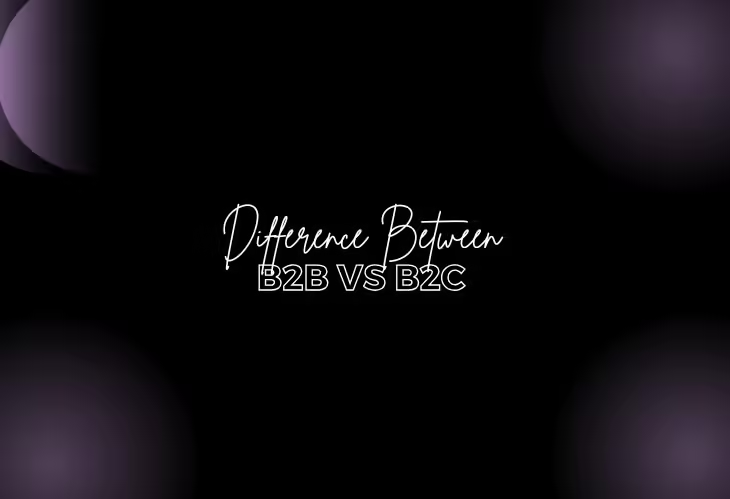In today’s world, where nearly every aspect of business and communication happens online, digital marketing has become essential for small businesses aiming to grow and thrive. Whether you’re a local bakery, a freelance graphic designer, or a small e-commerce store, having a robust digital presence is critical for reaching potential customers, building brand awareness, and ultimately increasing sales.
This blog will introduce you to the world of digital marketing, breaking down what it is, why it matters for small businesses, and how you can get started.
What is Digital Marketing?
Digital marketing refers to any marketing effort that uses the internet or electronic devices to promote products or services. It encompasses a variety of channels, strategies, and techniques that businesses can leverage to connect with their audience online. For small businesses, digital marketing is a cost-effective way to compete with larger companies and reach a broader customer base.
Some common forms of digital marketing include:
- Social Media Marketing: Using platforms like Facebook, Instagram, LinkedIn, and Twitter to promote products, engage with customers, and build your brand.
- Search Engine Optimization (SEO): Optimizing your website content to rank higher in search engine results, making it easier for customers to find you.
- Email Marketing: Sending targeted, personalized emails to your customer base to encourage repeat business or inform them of promotions.
- Pay-Per-Click Advertising (PPC): Running paid ads on search engines or social media platforms to drive traffic to your website or landing page.
- Content Marketing: Creating and sharing valuable content (such as blogs, videos, or infographics) to attract and engage customers.
- Influencer Marketing: Partnering with influencers who can promote your products to their followers, boosting your brand’s visibility.
Why Digital Marketing Matters for Small Businesses
As a small business owner, you may not have the large advertising budgets of big corporations, but digital marketing allows you to level the playing field. Here are a few reasons why digital marketing is so important for small businesses:
Cost-Effective: Traditional advertising methods like TV, radio, or print ads can be prohibitively expensive for small businesses. Digital marketing offers affordable alternatives like social media ads, email campaigns, and content marketing, which can deliver significant results with a relatively low budget.
Targeted Reach: Digital marketing lets you target specific audiences based on factors like location, age, interests, and behavior. Whether you’re running ads on Facebook or using Google Ads, you can ensure your message reaches the people who are most likely to be interested in your products or services.
Measurable Results: With traditional advertising, it’s often hard to determine whether your campaigns are actually working. With digital marketing, you can track everything from website traffic to conversion rates in real time. This allows you to refine your strategies and optimize your marketing efforts to get the best return on investment (ROI).
Build Brand Awareness and Credibility: A strong digital presence can help establish your brand as an authority in your niche. By sharing valuable content, engaging with customers on social media, and consistently delivering on your promises, you can build trust and loyalty with your audience.
Improved Customer Engagement: Digital marketing allows you to communicate directly with your customers. Whether through social media posts, email newsletters, or live chat on your website, you can engage with your audience, answer questions, and address concerns in real time.
24/7 Availability: With an online presence, your business is essentially open 24/7. Customers can browse your website, place orders, or find information about your services at any time, from anywhere in the world.
How to Get Started with Digital Marketing
Starting with digital marketing can seem overwhelming, especially if you’re new to the concept. But don’t worry—it’s entirely possible to get started with a few key steps. Here’s how you can begin:
Set Clear Goals
Before diving into digital marketing, it’s essential to understand what you want to achieve. Are you trying to increase website traffic? Build a loyal social media following? Increase sales through your online store? Defining clear, measurable goals will help you focus your efforts and track your progress.Identify Your Target Audience
Understanding your audience is one of the most important aspects of digital marketing. Consider who your ideal customers are: What are their interests? Where do they spend their time online? What problems are they trying to solve? By knowing your audience, you can create tailored content and ads that speak directly to their needs.Create a Website or Improve Your Existing One
Your website is the cornerstone of your online presence. If you don’t already have a website, now’s the time to create one. Make sure it’s user-friendly, mobile-responsive, and optimized for search engines. If you already have a website, ensure it is up-to-date, easy to navigate, and focused on converting visitors into customers.Leverage Social Media
Social media is one of the most powerful tools in digital marketing. Platforms like Facebook, Instagram, and TikTok allow you to engage with your audience, share updates, and build relationships. Start by choosing one or two platforms that best align with your target audience and begin posting regularly.Invest in SEO
Search engine optimization (SEO) is the process of optimizing your website so that it ranks higher on search engines like Google. While SEO can be complex, start by optimizing key pages on your website with relevant keywords. Creating high-quality content like blog posts or FAQs can also help improve your SEO.Start Email Marketing
Email marketing remains one of the most effective ways to communicate directly with your customers. Build an email list by offering incentives such as discounts, free resources, or exclusive offers. Once you have a list, send regular, personalized emails that provide value to your audience.Run Small-Scale Ads
Digital ads can help you reach a larger audience quickly. Google Ads, Facebook Ads, and Instagram Ads are popular platforms that allow you to run cost-effective campaigns. Start small to test different ad types, target audiences, and messaging to find what works best for your business.Analyze and Adjust
Digital marketing is an ongoing process. Use analytics tools like Google Analytics, social media insights, and email campaign reports to monitor your performance. Don’t be afraid to adjust your strategies as needed to improve your results.

Conclusion
Digital marketing provides small businesses with a unique opportunity to level up and compete in an increasingly digital world. While it may seem daunting at first, by starting with the basics—defining goals, identifying your target audience, and selecting the right platforms—you can begin to build a successful online marketing strategy that grows your business.
Remember, the key to digital marketing is consistency. By regularly updating your website, posting on social media, and engaging with your customers, you can create lasting relationships that drive long-term success. Stay patient, experiment with different strategies, and keep optimizing based on your results. The digital world is your oyster, and with the right tools and mindset, your small business can thrive.
Digital marketing empowers small businesses to compete on a global scale, turning limited resources into limitless opportunities for growth, engagement, and success.
Hire a team of expert marketers to handle
Just because a marketing strategy worked for one project doesn’t mean it will always work. At Mozo, we believe that every business is unique, and your marketing strategy needs to be just as adaptable. People’s behaviors, preferences, and trends evolve constantly, and to stay ahead, your strategy must be flexible.
Ready to grow your revenue with Mozo? Get a Free Consultation to Boost Your Busines





